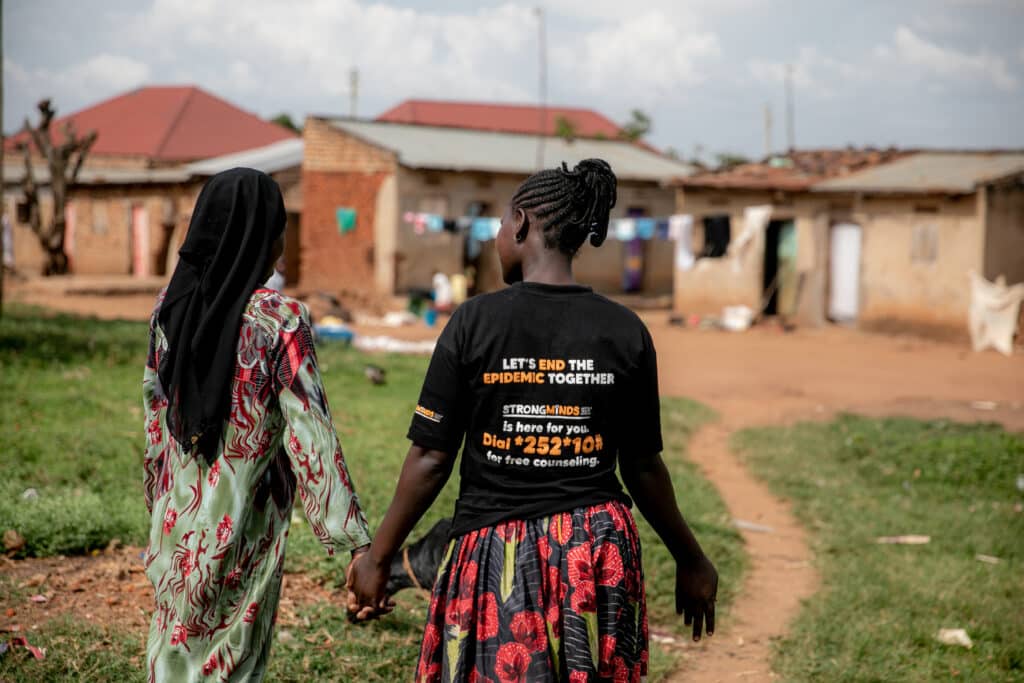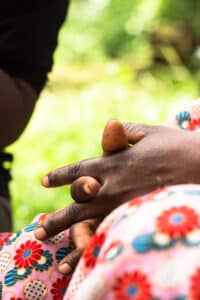World Suicide Prevention Day: Confronting Depression and Suicide in Africa
Suicide is a major public health concern that touches individuals and families around the world. It is estimated that more than 700,000 people die from suicide each year, with more than 73% occurring in low- and middle-income countries.
In Africa, the suicide rate is higher than the global average—in part due to inadequate services to address mental health conditions, such as depression, that affects nearly 30 million people on the continent.
Depression is more than just sadness; it impairs a person’s cognition and day-to-day function and erodes self-esteem. It can lead to conflict and social isolation, creating a negative feedback loop that only compounds feelings of despair. Depression can also cause poor physical health and can lead to financial instability, substance abuse, and high-risk sexual behavior. Untreated depression is the leading risk factor for suicide, and up to 85% of people across Africa have no access to treatment.

The need for effective mental health interventions is critical. To fill this gap, StrongMinds’ has implemented the use of interpersonal group therapy (IPT-G), a WHO-recommended therapy model for depression. We train and mobilize lay community-based volunteers to facilitate therapy groups for their peers. This approach is particularly crucial in countries like Uganda and Zambia, where we encounter high depression rates of up to 25% among the people we screen. Therapy groups provide critical support to people battling feelings of hopelessness.
Suicidal ideation can stem from a complex interplay of factors, including feelings of hopelessness, and people experiencing these thoughts may see suicide as the only solution to their pain or distress. For James, a 45-year-old man living in Mbarara District, Uganda, the weight of his struggles had become too much to bear. Amid high tensions at home and constant conflict with his wife, he turned to alcohol as a coping mechanism, but he reached a point where even his reliance on substances couldn’t provide a form of escape. “I [considered suicide] because I felt so tired of life,” he said.
Fortunately for James, local residents intervened and he ultimately enrolled in a StrongMinds therapy group where he began to confront the emotional turmoil he tried to repress through alcohol. In therapy, James learned that his drinking only exacerbated his emotional pain and isolation. He learned effective communication and conflict resolution skills, enabling him to address issues with his wife head-on, alleviating some of the tension at home. James found hope and purpose in his life again. He now feels empowered to handle disputes within his family and is committed to maintaining his sobriety.
However, James’ experience is not an isolated one. Stella, a 63-year-old widow in Zambia, is the sole caregiver for her four grandchildren after her two daughters passed away within months of each other. Left with no job and limited financial resources to pay rent or buy food, Stella began to contemplate suicide as the only way out of her problems.
 After joining a StrongMinds therapy group, Stella was able to share her challenges and experiences of grief and social isolation. She not only learned healthy coping mechanisms, but through the suggestions of other women in the group, she secured a loan and started a small business that helps support her and her grandchildren. “I am really grateful to StrongMinds,” she expressed. “I would not have been alive today to tell my story had it not been for their intervention.”
After joining a StrongMinds therapy group, Stella was able to share her challenges and experiences of grief and social isolation. She not only learned healthy coping mechanisms, but through the suggestions of other women in the group, she secured a loan and started a small business that helps support her and her grandchildren. “I am really grateful to StrongMinds,” she expressed. “I would not have been alive today to tell my story had it not been for their intervention.”
As we observe World Suicide Prevention Day, let’s remember that destigmatizing depression is not just about raising awareness—it’s about saving lives. Too many people suffer in silence, afraid to seek help due to the fear of judgment. By fostering open conversations about mental health and providing compassionate support, we can encourage those in need to seek help and reduce stigma. Today, make sure to check in with the people around you and remind them that they are not alone. Sometimes a simple conversation can make all the difference.
